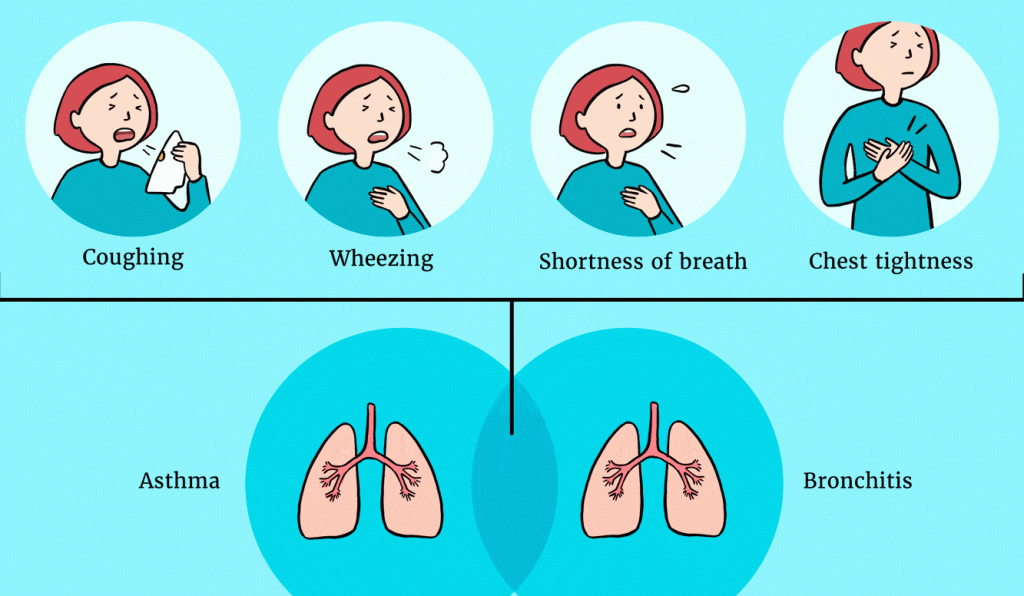### Understanding Asthma Symptoms
Asthma is a persistent respiratory disease impacting around 25 million people in the United States and 300 million globally. Without appropriate treatment, asthma can become severe and even pose life-threatening risks.
The World Health Organization (WHO) identifies asthma as the most prevalent chronic disease among children. It’s a significant non-communicable disease (NCD) that affects both children and adults. Asthma is characterized by the inflammation and constriction of the small airways in the lungs, which leads to symptoms such as coughing, wheezing, shortness of breath, and chest tightness.
### Common Triggers
Asthma triggers can vary from person to person but typically include viral infections like colds, dust, smoke, fumes, weather changes, pollen from grass and trees, animal fur and feathers, as well as strong soaps and perfumes. Despite these varying triggers, the symptoms of asthma attacks are generally similar across all individuals.
### Identifying Asthma Symptoms
Common symptoms of asthma include:
- Difficulty breathing
- Chest tightness or pain
- Wheezing
- Difficulty sleeping due to shortness of breath
- Coughing fits, often worsened by respiratory viruses like the cold or flu
For some individuals, asthma symptoms exacerbate under specific conditions:
- Exercise-induced asthma (often triggered by cold, dry air)
- Occupational asthma (caused by workplace irritants like fumes, gases, or dust)
- Allergy-induced asthma (triggered by allergens such as pollen, spores, or animal fur)
Currently, there is no cure for asthma, but it can be managed effectively with prescribed medications.
### Asthma Management
For more detailed information on asthma management drugs, visit the [Pro Health Support Asthma Resource](https://prohealthsupporter.com/asthma/).
Asthma medications are divided into two main categories: **quick-relief medications** (for acute asthma attacks) and **long-term control medications** (for ongoing management and prevention).
#### Quick-Relief Medications
- Short-acting beta2 agonists
- Antimuscarinics
- Systemic corticosteroids
- Intravenous xanthine
#### Long-Term Control Medications
- Inhaled corticosteroids
- Long-acting beta2 agonists
- Leukotriene inhibitors
- Xanthines
By understanding and managing asthma, individuals can lead a more comfortable and active life despite their condition.
